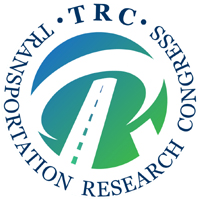TRC2025 Successfully Held
The Transportation Research Congress 2025 brought together over 300 experts and scholars from China, the United States, the United Kingdom, the Netherlands, and several other countries and regions. Centered on the theme of “Sustainable, Resilient, and Smart Future Transportation,” the congress covered a broad range of topics including highways, railways, airports, traffic management, and intelligent driving.
The program featured nine keynote speeches, 36 parallel sessions, one roundtable discussion, and two international expert review forums for graduate students. Discussions highlighted that the integration of artificial intelligence, big data, and new material technologies will be essential to developing more efficient, safer, and environmentally friendly transportation systems worldwide.
As a key milestone in the TRC series, TRC2025 not only showcased the latest advances in transportation science and technology but also reinforced interdisciplinary and international collaboration. It made significant contributions to promoting innovation across the field and accelerating the development of future transportation.
Looking ahead, TRC2027 will be hosted by Tongji University in Shanghai, where delegates look forward to reconvening in two years to further drive progress in transportation innovation.
Welcome to TRC2027!
INTRODUCTION
The Transportation Research Congress (TRC) aims to be a “Think Tank for Transportation Innovations” and provide an international platform for academic exchange. It was established and held the first session in 2016. The TRC has successfully held for three sessions so far with the support of colleagues from around the world.
The 4th session of TRC to be held in Beijing will be hosted by the National Center for Materials Service Safety, University of Science and Technology Beijing. TRC2025 focuses on the sustainability, resilience, and application of artificial intelligence in transportation systems. The topics will cover both traditional fields and crosscuttings, involving highways, railways, airports, water transport, traffic management, and Intelligent driving. We hope TRC2025 will provide a systematic perspective of the academic frontiers for transportation infrastructures and systems through presentations and discussions.
We sincerely invite you to come to Beijing and join us at TRC2025 to contribute to collaborations and innovations that will shape sustainable, resilient, and intelligent future transportation, supporting a harmonious interconnected world.
Sponsor: Related universities and institutes
Organizer: University of Science and Technology Beijing (National Center for Materials Service Safety)
Submit a short paper or presentation abstract
Download stamped conference notice
Distiguished Guests (in alphabetical order)
 | 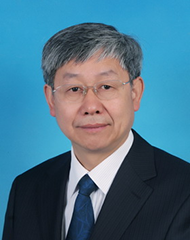 |  |  |
| David Cebon | Jianguo Nie | Wei Wang | Jianlong Zheng |
| University of Cambridge, Professor, Fellow of the Royal Academy of Engineering | Tsinghua University, Professor, Academician of Chinese Academy of Engineering, International Fellow of the Engineering Academy of Japan | Southeast University, Professor | Changsha University of Science and Technology, Professor, Academician of Chinese Academy of Engineering |
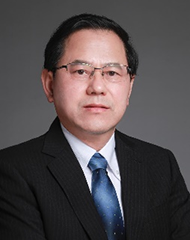 | |||
| Hehua Zhu | |||
| Tongji University, Professor, Academician of Chinese Academy of Engineering | |||
Keynote Speakers (in alphabetical order)
 |  |  | 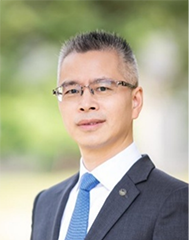 |
| Chunsheng Cai | David Cebon | Baoshan Huang | Jianming Ling |
| Southeast University, Professor | University of Cambridge, Professor, Fellow of the Royal Academy of Engineering | The University of Tennessee, Knoxville, Edwin G. Burdette Professor | Tongji University, Professor, Dean of the College of Transportation |
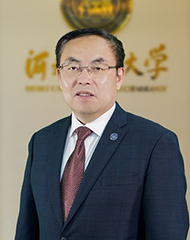 |  |  |  |
| Guowei Ma | Lijun Sun | Yiqiu Tan | Linbing Wang |
| Hebei University of Technology, Professor, Vice President | Tongji University, Professor | Harbin Institute of Technology, Professor, President of HIT, Weihai | University of Georgia, Professor |
 | |||
| Hehua Zhu | |||
| Tongji University, Professor, Academician of Chinese Academy of Engineering | |||
Keynote Speeches
Chunsheng Cai: Research Prospects and Re flections toward Intelligent Bridges
David Cebon: Decarbonising Road Freight
Baoshan Huang: Recycling Applications in Asphalt Pavements
Jianming Ling: Dynamics of Airport Runway System and Its Application
Guowei Ma: 3D Printing Oriented New Construction Technology, Material, and Structure
Lijun Sun: New Concept of Long-Life Pavement Design
Yiqiu Tan: Road Ice/Snow Disaster Prevention and Mitigation
Linbing Wang: Multiscale Simulative Testing for Performance and Fundamental Properties of
Asphalt Pavements and Materials
Hehua Zhu: Discussion and Practice on Several Issues in Intelligent Construction of Tunnel
Engineering
Topic
Parallel Sessions
1) High-Performance Materials and Innovative Structural Technologies for Underground Engineering Applications
2) Basic Theory of Resilience of Deep Underground Space in Mega-Cities
3) Key Technologies for Emergency Repair and Rapid Traffic Resumption in Railway Infrastructure
4) Artificial Intelligence for Smart Construction and Maintenance
5) Artificial Intelligence Empowered Theory and Methods in Bridge Engineering
6) Bridge Health Monitoring and Intelligent Operation and Maintenance
7) Intelligent Transportation and Smart Highway
8) Autonomous Driving and Vehicle-Infrastructure Cooperation
9) Intelligent Pavement Condition Inspection & Maintenance
10) Pavement Skid Resistance Monitoring and Enhancement Technologies
11) New Technologies in Cement Concrete Pavement
12) Deterioration Behavior and Durability Enhancement Technologies of Cement Concrete Pavement
13) Sustainability and Resilience for Road Infrastructure (1, 2)
14) Low-carbon and Durable Polyurethane-based Paving Materials and Technology
15) Challenges of Multi-physics Service Environments on Asphalt Pavement
16) Next-Generation Resilient Airport Infrastructure: Key Technologies and Future Outlook
17) Smart Low-Altitude Transportation Systems: Development Pathways and Frontier Innovations
18) Highway Geotehnical Engineering Theory and Technology
19) Multi-Scale Performance Enhancement Technologies for Transport Infrastructure
20) AI-Powered Smart Roads: Next-Gen Infrastructure and Collaborative Vehicle-Road Ecosystems
21) Driver Behavior Characteristics Analysis and Innovative Applications
22) Intermodal Transport and Smart Logistics
23) Advances in Smart Urban Mobility Technologies
24) Digital Twin Modelling of Autonomous Road Infrastructures and Environment
25) Performance-Related Material Properties of Asphalt Mixture Components
26) Environmental-Friendly Pavement Materials
27) Sustainable Cement Materials for Transportation Infrastructure
28) 3D Printing Materials Innovation and Technical Research for Civil Transportation Infrastructure
29) Automated solutions for infrastructures
30) Enhancing the Resilience of Bridge Structures to Extreme Events
31) Constructing Green Technology Systems for Road Engineering
32) Workshop of Interdisciplinary Research on Transportation Infrastructure
33) Multiscale Mechanics and Data-driven Modelling for Climate Resilient Road Infrastructure and Materials
34) Cutting-Edge AI Techniques for the Future of Civil Engineering
35) Round-Table Forum: Future Undeground Space: Resilence, Intelligence and Sustainability
36) Sustainable Solutions for Road Infrastructure Resilience
37) Expert Commentary on Graduate and Ph.D. Students’ Research (1, 2)
